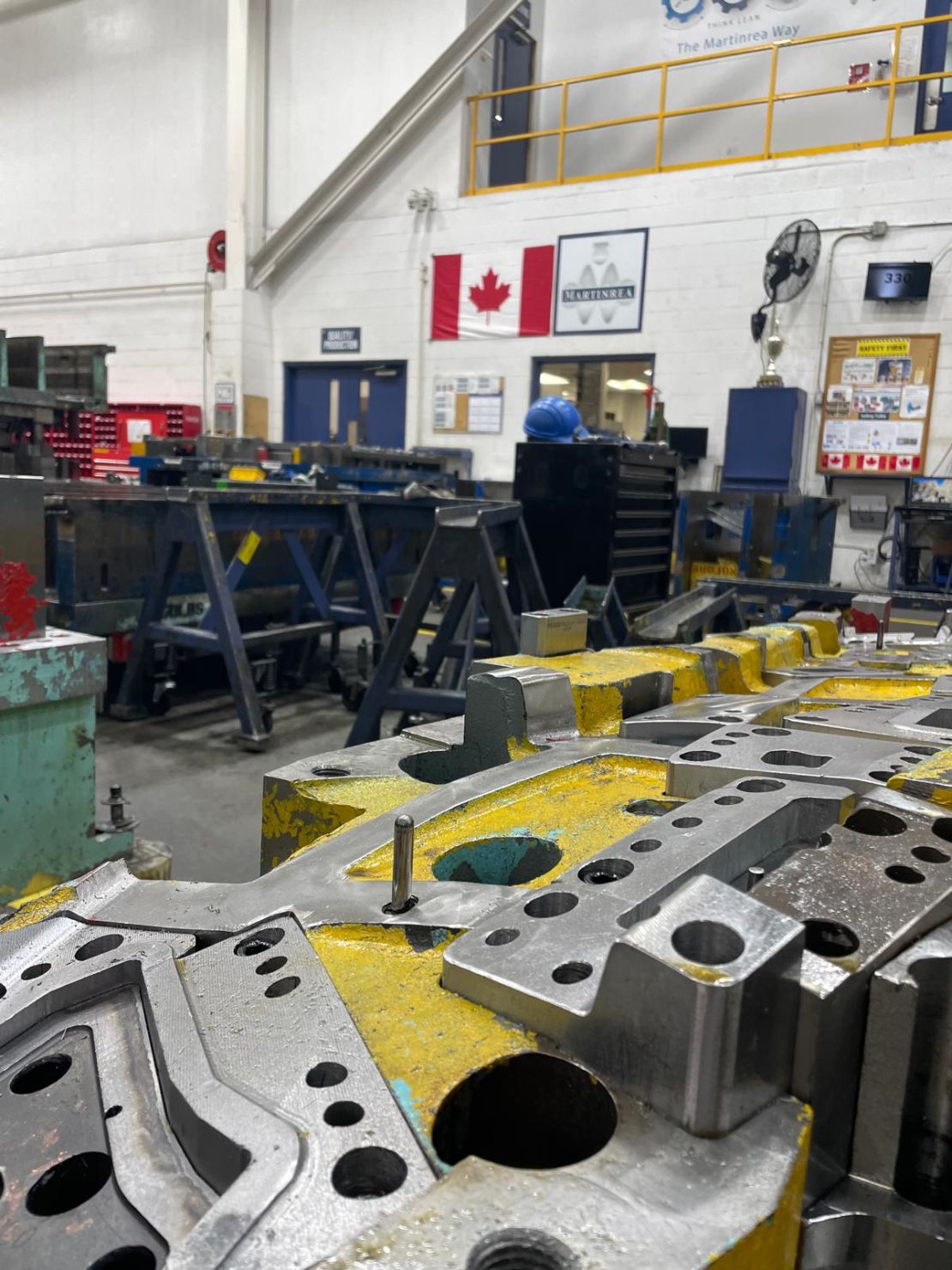“Why blow it up?” Rob Wildeboer, executive chairman at Martinrea International, asked CNN. “I don’t know anyone in our company who wants tariffs between Canada and the US, because we work very well as a unit.”
Martinrea manufactures a wide range of parts for large car companies including Volvo, Stellantis and Ford. The company employs around 19,000 people across the world, with most of its workforce in Canada, the United States and Mexico.
“We take care of our people everywhere,” Wildeboer said, showing CNN around the floor of his factory in Vaughan, Ontario, a small city just outside Toronto.
Canada is the United States’ closest trading partner, with exports and imports alone adding up to nearly a trillion dollars a year. The trade surplus rests at about $40 billion in Canada’s favor, according to the US Congressional Research Service. Trump exaggerated this figure at Davos last month, incorrectly claiming that the US has a $200-$250 billion trade deficit with Canada.
“Concerning the so-called trade deficit,” Wildeboer said, “If you take out cheap oil, which US refineries refine and make a ton of money, the US has a trade surplus.”
Moreover, the exchange in auto parts between the two countries, Wildeboer explained, is pretty much even, give or take a few million dollars.
“Canada is the largest purchaser of US goods,” Wildeboer continued. “We’re a big customer. At the end of the day, I think you’d want to keep a customer.”

Before Trudeau’s announcement that the tariffs were on hold, workers at Martinrea told CNN they felt confident in the government’s response. The prime minister had threatened tit-for-tat tariffs against American goods. Several provinces pulled American alcohol from government-owned liquor stores. Elon Musk was a notable target – hours before Trump and Trudeau had their last-minute negotiations Monday afternoon, Ontario Premier Doug Ford “ripped up” the province’s contract with Musk’s company Starlink.
‘It’s gonna hurt anyhow’
Sultan Egebesci, originally from Turkey, has lived in Canada for four years and has worked at Martinrea for three. She considers the company her “second family.”
“Of course, I’m worried,” Egebesci told CNN when asked about the looming possibility of a trade war with the United States. But she said was trying not to stress out too much.
“I know when we do everything together, everything gonna be fixed,” Egebesci said of Canadians. “Everything can be fixed.”
Egebesci is encouraged by the movement to “Buy Canadian,” and told CNN that when she shops, she first looks for a “Made in Canada” label before making a purchase.
“I feel confident,” said Pisey Lim, another Martinrea employee. “I trust the company.” Her friends at other companies nearby, however, “feel a little bit nervous.”
“They’re scared they might lose their job,” Lim said. “They see in their work, it’s quite less work. Some people stay home.”
Naitik Jariwalla, who’s worked at Martinrea for three years, said he was worried about the possibility of losing his job, but thought Canada was “taking the right steps.”
“The government has been prepared for almost a month now,” Jariwalla said. “I have hope for Martinrea.”
However, Jariwalla predicted that the issue wouldn’t go away anytime soon. It’s time, he said, to dig in. Canada should stand up to the United States “even if it hurts a bit.”
“It may take one or two years to settle down,” Jariwalla told CNN. “But this is a good time for Canada to support their legs and stop relying on another country. I think it’s going to be good for Canada. I think Canada can grow.”
“It’s gonna hurt anyhow,” Jariwalla continued. “Either you deal with it right now, or in the future.”
A ‘big deal’ in the States
Despite the Canadian flags hanging on the factory walls, Martinrea is in some ways an American company, too. Wildeboer points out that the company employs twice as many people in the US as in Canada, particularly in Michigan, where Trump won a slim majority in 2024.
“We’re a big deal locally,” Wildeboer said. “We take care of a lot of people. I would say that a lot of those people like President Trump and they like his message: lower inflation, more jobs, strong economy. But with the tariffs and so forth, you’re getting higher inflation, less jobs, weaker economy.”
The executive guessed that those employees might change their mind on the president’s agenda come midterm elections in two years. That said, apart from his position on tariffs, Wildeboer admitted he understands much of Trump’s message about Canada.
“A lot of what President Trump or the Americans have said to Canadians has a lot of merit,” Wildeboer said.
Trudeau’s initial announcement that the tariffs were paused for 30 days focused almost exclusively on Canadian investment in border security and fentanyl mitigation. Though less than 1% of fentanyl trafficked into the US comes from Canada, Trump has fixated on the prospect of opiates streaming in over the northern border. In a recent “Fact Sheet,” his administration claimed that there exists “a growing presence of Mexican cartels operating fentanyl and nitazene synthesis labs in Canada.”
In response, Trudeau has agreed to appoint a “Fentanyl Czar” to deal with the issue. The prime minister even said that Canada would follow the US in declaring cartels as terrorist organizations, though Mexico’s president said she considers the US designation unhelpful.
“In the context of fixing our border, dealing with fentanyl or immigration, I think that the vast majority of Canadians agree,” Wildeboer said. “I think most Canadians would agree that we should spend more on our military. We should defend our Arctic. We have Chinese planes and Russian planes flying over our land. At the end of the day, that’s our land. We should protect it. We should protect it with the United States.”














